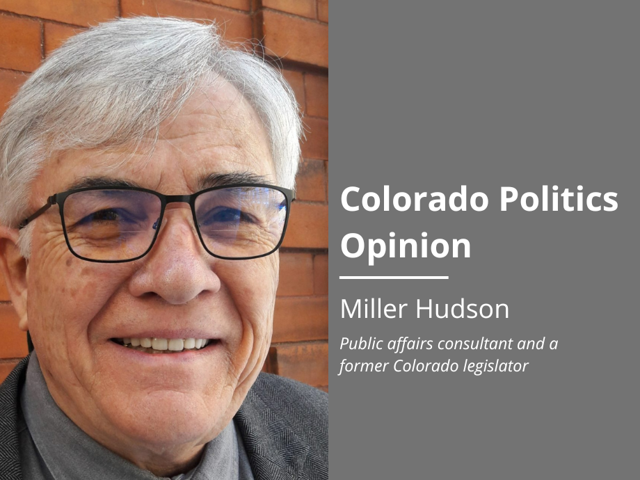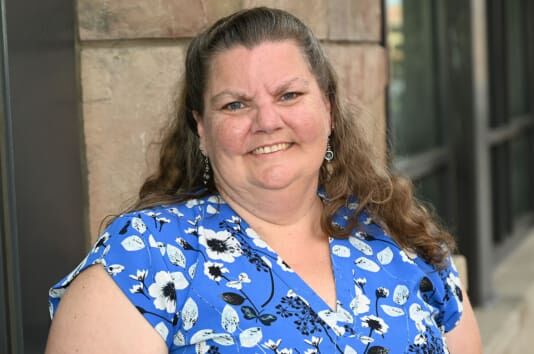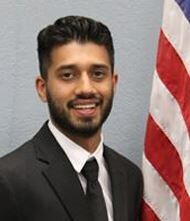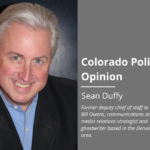Anti-democratic state transit policy scheme politically tone deaf | HUDSON


Forty-four years ago, Denver state Rep. Jack McCroskey and I successfully passed a bill for the second time in the Colorado House to elect Regional Transportation District board members. Our bill failed again to receive a vote in the Senate. Roger Walton was the lobbyist representing the appointed board members, who were virulently opposed to being replaced with elected members. Walton had persuaded Senate leadership to “pocket veto” our legislation. This torpedoing of our proposal was permissible under existing procedural rules. We warned Roger we were prepared to circulate petitions and place this question before voters on the 1980 ballot. With time running out, we only had 60 days to collect 150,000 signatures and were required to use all volunteer circulators.
Few observers thought we could pull this off. It would be several years before Common Cause placed its GAVEL amendment, guaranteeing every bill received both a committee hearing and a floor vote under the Gold Dome. The prohibition against paid petitioners would not be reversed by Colorado courts for nearly a decade. The odds were, indeed, stacked against us, and I am the only sponsor of the RTD ballot question remaining.
Stay up to speed: Sign up for daily opinion in your inbox Monday-Friday
What no one anticipated at the time was the intense public disgust for the appointed board governing RTD. During the previous year, it committed three incredible blunders: (1) they leased a private jet to attend a national transit meeting, (2) used tax dollars to hire a private detective to produce evidence of a personal relationship between the general manager and a member of the board, details of which were leaked to Denver newspapers, and (3) approved the gift of a fully-equipped Winnebago RV to the board chairman by the winning contractor selected to construct the 16th Street Mall.
The board had also failed twice to advance a transit alternative despite voter approval of funding for a personal rapid transit (PRT) system which collapsed when the technology proved unworkable and federal dollars evaporated. There was a record of incompetence, arrogance and apparent corruption. Our initiative may be the only petition campaign where circulators were rushed by voters asking whether they were collecting signatures for an elected RTD board. That summer, the Denver Art Museum hosted a Muppets exhibition. Jeff Hardcastle and I collected 6,000 signatures daily as we worked our way down the lines of waiting parents. We also purchased tickets for Red Rock concerts, courteously holding doobies for fans as they signed our clipboards – another 6,000 to 8,000 signatures at each concert. Volunteers descended on park-n-ride lots morning and evenings. We submitted 160,000 signatures two weeks before our deadline.
In November, 83% of voters supported the elected board. In today’s political climate I doubt you could achieve 80% approval for anything. Voters also rejected the appointed board’s third attempt to launch transit with a half-baked, light-rail proposal along Interstate 25 – without grade separations and requiring crossing arms on exit and entrance ramps. I cannot tell you the elected board has proven a seamless success. It has had its ups and downs, as always occur in a democracy. I can say, I believe it required an elected board to finally jumpstart the light-rail system we enjoy today.
The priority for the newly elected board was to fix a bus system which had been allowed to badly deteriorate. Transit planning was put off for a decade. Jack McCroskey resigned his legislative seat to serve as the elected board’s first president. He and the board insisted every bus be equipped with wheelchair lifts – a full decade before the Americans with Disabilities Act (ADA) was signed by President George H. W. Bush. The Federal Transit Administration (FTA) took a dim view of this policy, as did most other transit industry operators. It was RTD’s success that prompted the ADA to extend a similar requirement nationwide. When RTD’s initial request for federal transit funding was denied, McCroskey persuaded his colleagues to build an initial segment entirely with local funds. Initially it was suggested this would be a connection from I-25 and Broadway to Stapleton Airport. When that concept was resisted by majority-Black neighborhoods in Park Hill, the segment was changed to link Five Points to Broadway. RTD’s next application to the FTA allowed the agency to use this investment as its match for federal dollars.
Regional transit planners recognized the I-25 corridor would provide the most ridership, but neighborhoods along this route could not reach agreement on routing or stations. Bob Tonsing, former mayor of Littleton, lined up support along the Santa Fe corridor and grabbed the federal dollars available. Jon Caldara, now at the Independence Institute and a transit skeptic, was elected to the board from Boulder with two objectives: (1) privatizing a significant portion of bus services and (2) slowing the rush towards transit expansion. Cal Marsella was hired as general manager and Caldara achieved half of what he wanted – privatization of many routes, but transit proceeded ahead. Caldara did secure implementation of SKIP routes in Boulder to supplement the existing HOP and JUMP services.
So, why is a cabal of legislators attempting to roll back the elected board in favor of an appointed board after more than four decades? It isn’t a lust for good government, but a desire for special consideration. The Broomfield sponsors have their noses out of joint because their neighborhoods lost several routes when RTD curtailed service in the wake of COVID-19 impacts on ridership throughout the region. RTD has weathered pandemic changes to commuting patterns better than most major transit operators – reducing fares without raising taxes. It likely faces continued choppy waters for another few years.
The push for an appointed board is not a grassroots demand from riders, but part of a scheme to centralize the control of transportation policy along the Front Range. Picking this quarrel at a juncture when Gov. Jared Polis is seeking voter support for Front Range Passenger Rail is politically tone deaf. RTD has cooperatively joined with CDOT and the Front Range Passenger Rail Commission in releasing a joint rail service white paper outlining a strategy for resolving the promised FasTracks northwest rail extension to Boulder and Longmont. Tossing the elected Board members representing more than half of Front Range voters before going to the ballot feels colossally self-defeating.
I’m reminded of William F. Buckley’s admonition he would prefer to be ruled by a Congress comprised of the first 500 names in the New York City phone book than one appointed from the faculties at Harvard and Yale. It’s particularly disappointing when national Democrats are asking America to protect threatened democracy in Ukraine that legislative Democrats here are seeking to repeal democracy in favor of a coterie selected among the usual 17th Street suspects. Undoubtedly, they will prove more responsive to elite power brokers than the elected board. Why not put this coup to a vote? Transit-dependent riders are likely to take a profoundly dim view of this alleged “improvement.”
Miller Hudson is a public affairs consultant and a former Colorado legislator.













